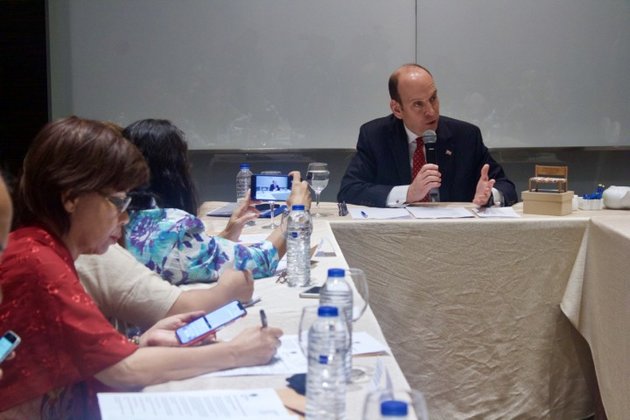2LT National News
UK, PH ties up for anti-sexual abuse, wildlife, educ programs
Jun 1, 2019
CEBU CITY, May 28 (PIA) – British Ambassador to the Philippines Daniel Pruce seeks to build a stronger bilateral relationship through anti-online sexual exploitation, anti- illegal wildlife trade, and education programs between United Kingdom (UK) and the Philippines especially Cebu.
According to Pruce, Philippines is one of the world’s leading providers of online pornographic imagery and UK is one of the leading “consumers” of such materials.
The Philippine Department of National Defense (DND) and UK Ministry of Defence (MOD) signed a memorandum of understanding that provides a new framework of partnership, collaboration, and sharing of experiences and skills in defense and security.
Likewise, UK’s National Crime Agency and PNP signed an agreement that led to the conviction of a number of individuals who are involved in online exploitation.
Earlier this year, the Philippines, together with Australia and the United Kingdom, formed the Philippine Internet Crimes Against Children Center (PICACC) that aims to combat the increasing incidents of online exploitation.
Another focus of the bilateral relationship is the illegal wildlife trade, especially of the Pangolins in Palawan.
During the 4th Illegal Wildlife Trade (IWT) conference last year, UK expressed its commitment in supporting the projects of the Philippines on IWT awareness, regulation, and enforcement.
Another focus of the programs of UK in the Philippines is in the field of education.
British Education Council, Commission on Higher Education (CHED), and Department of Education (DepEd) are currently partnering with 20 higher education institutions in the Philippines and UK to deliver joint courses of study that allows students to study in either of the two countries and the credentials would be recognized in both.
This is called the transnational education initiative.
Moreover, the UK Embassy promotes the Chevening scholarship that sends the best and brightest students of the Philippines to UK.
This year, they have sent 36 post-graduate students, an increase from the five to six individuals in the previous years.
Pruce also encourages more applications from other regions as most scholars hail from the National Capital Region. (Bridgette May Bayhon/PIA7)



